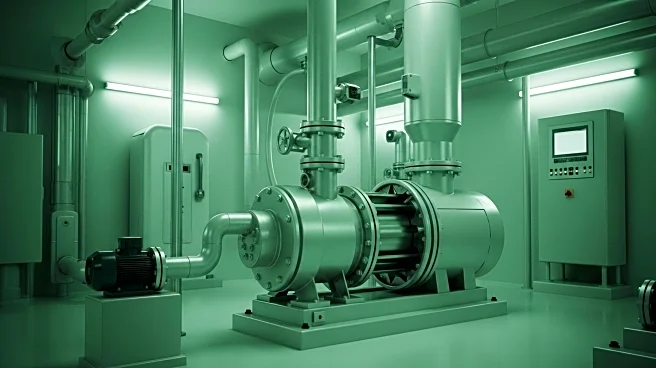What is the story about?
What's Happening?
BASF has initiated the construction of a CO2-free steam heat pump at its Ludwigshafen site, aiming to significantly reduce greenhouse gas emissions. The project, supported by the German Federal Ministry for Economic Affairs and Energy, involves a €310 million investment and is part of the Carbon Contracts for Difference funding program. The heat pump will produce steam using green electricity, primarily for formic acid production, and is expected to reduce emissions by 100,000 tons of CO2 annually. The initiative is part of BASF's broader strategy to achieve climate neutrality and offer products with a lower carbon footprint.
Why It's Important?
This project represents a significant step towards decarbonization in the chemical industry, aligning with global efforts to combat climate change. By reducing reliance on fossil fuels and utilizing green technologies, BASF is setting a precedent for sustainable industrial practices. The reduction in CO2 emissions will contribute to Germany's environmental goals and enhance the country's reputation as a leader in green technology. The project also highlights the importance of government support in facilitating large-scale environmental initiatives, which can drive innovation and create new market opportunities.
What's Next?
The heat pump is scheduled for commissioning in mid-2027, and its successful implementation could encourage other companies to adopt similar technologies. BASF's commitment to sustainability may influence industry standards and regulatory policies, promoting further investments in green technologies. As the project progresses, stakeholders will likely monitor its impact on production efficiency and environmental outcomes, potentially leading to broader adoption of CO2-free technologies across the chemical sector.
















